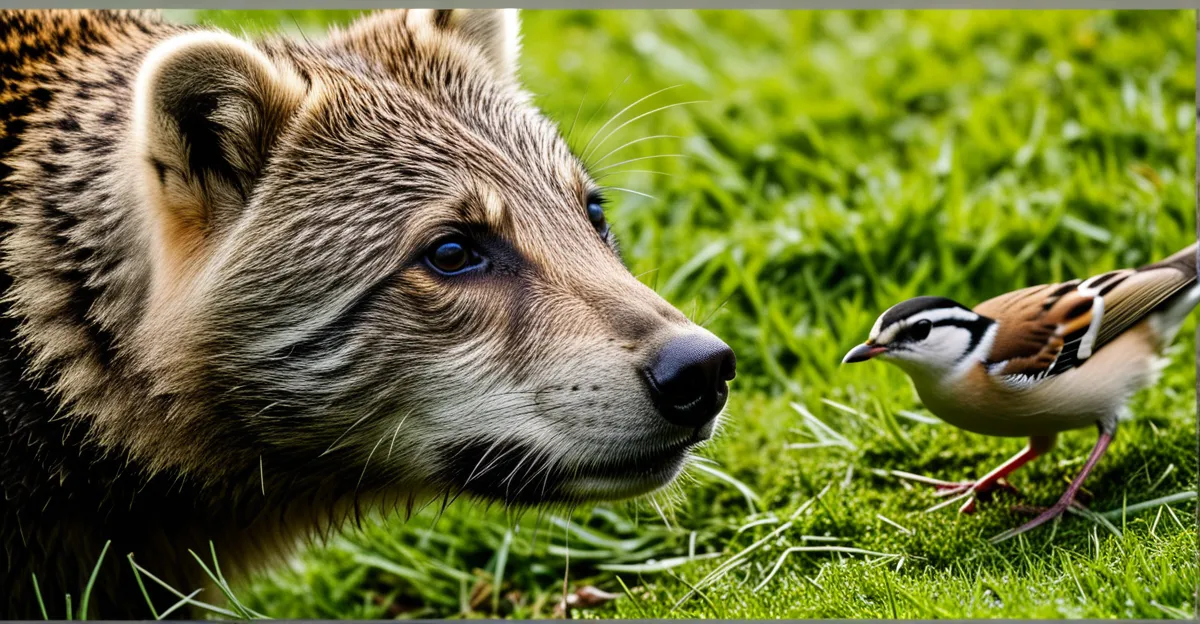Most Popular Pets in UK Households: Current Rankings and Statistics
Recent pet ownership statistics reveal that dogs, cats, and other small pets dominate UK households in 2024. Dogs remain the most common pets in UK homes, with an estimated 33% of households owning at least one dog. This translates to around 12 million dogs nationwide, reflecting steady growth driven by companionship needs and active lifestyles.
Cats follow closely, present in approximately 29% of UK households. The UK pet population 2024 reflects a rise in cat ownership, favoring indoor environments amid growing awareness of pet welfare. This shift influences overall pet population statistics, highlighting preferences for manageable, indoor-friendly companions.
Have you seen this : How Does Pet Ownership Affect Your Lifestyle in the UK?
Other popular pets in the UK include small mammals, birds, and fish. Small mammals such as hamsters, rabbits, and guinea pigs are found in nearly 7% of homes. Bird ownership accounts for around 3%, while fish tanks and aquariums are in about 5% of households, demonstrating a steady interest in low-maintenance pets.
Recent shifts in pet ownership show a gradual increase in the popularity of smaller and more adaptable pets. This trend corresponds to changing lifestyles, urban living conditions, and pet ownership costs, all of which shape the evolving pet population landscape in the UK.
This might interest you : What Are the Latest Pet Ownership Trends in the UK?
Emerging Trends and Changes in Pet Ownership
Recent pet ownership trends UK reveal significant shifts impacting the landscape of the UK pet industry 2024. A clear rise in smaller, more adaptable pets reflects changing lifestyles. For example, urban living and increasing remote work encourage preference for pets that fit compact spaces and offer manageable care. This shift is supported by pet population 2024 data highlighting growth in ownership of small pets UK like rabbits, hamsters, and guinea pigs, which have become more popular due to their ease of handling and lower costs.
Additionally, the increasing cost of living has made some potential pet owners reconsider choices, favoring animals that require less expensive upkeep and fewer resources. Such decisions align with broader pet ownership trends UK, where the traditional favorites like dogs and cats retain dominance but face competition from smaller, low-maintenance species.
Looking ahead, experts predict continual diversification in pet ownership. The rise of exotic or unconventional pets may accompany trends towards sustainability and wellness, with consumers seeking companions that suit personal health routines and living conditions. Therefore, understanding these evolving patterns gives deeper insight into how the popular pets in UK will develop beyond current pet population 2024 figures.
Other Common Pets in the UK: Small Mammals, Birds, and Fish
Among the most common pets UK include a variety of small pets UK such as rabbits, hamsters, and guinea pigs. These small mammals are found in around 7% of UK households, reflecting a stable and modest segment of the pet population 2024. Their appeal lies in their relatively low maintenance and suitability for smaller living spaces, factors key to current pet ownership statistics.
Bird ownership in the UK, though less widespread, remains a consistent choice for pet lovers. Approximately 3% of households own birds, often valuing their vibrant presence and companionship without the intensity of care dogs or cats require. This category fits well within popular pet preferences for moderate upkeep.
Fish tanks and aquariums represent another notable segment, with around 5% of UK homes maintaining pet fish. Fish are applauded for being low-maintenance and providing aesthetic and calming benefits in domestic environments. These trends emphasize how popular pets in UK vary beyond the dominant dogs and cats, accommodating diverse lifestyles and living situations.
In summary, small mammals, birds, and fish complement the dominant pet population 2024, each appealing to different needs within the UK’s varied pet-owning public.
Most Popular Pets in UK Households: Current Rankings and Statistics
The most common pets UK households currently own continue to reflect dogs and cats as dominant favorites. Dogs lead, present in approximately 33% of homes, followed closely by cats at 29%. This means roughly a third of UK households include a dog, with around 12 million dogs estimated nationwide, while just under a third have pet cats. These figures come from detailed pet ownership statistics, which show dogs maintaining a slight edge in popularity due to active lifestyles and companionship needs.
Beyond dogs and cats, the pet population 2024 includes smaller companions: rabbits, hamsters, and guinea pigs occupy nearly 7% of households, supported by growing interest in adaptable, low-maintenance pets. Birds and fish also feature among the popular pets in UK, with about 3% and 5% of homes respectively keeping them.
A notable trend within pet ownership statistics is the gradual rise of smaller pets and a shift in preference driven by urban living demands and financial considerations. These shifts reflect how the pet population 2024 adapts to evolving lifestyles, emphasizing pets that balance companionship with manageable care and affordability.
Most Popular Pets in UK Households: Current Rankings and Statistics
Pet ownership statistics for 2024 confirm dogs and cats dominate as the most common pets UK households choose, with dogs in 33% of homes and cats close behind at 29%. This translates to an estimated 12 million dogs and a similar scale of pet cats nationwide, firmly establishing their position in the pet population 2024. These figures originate from extensive surveys measuring the prevalence of popular pets in UK residences.
Small mammals, including rabbits, hamsters, and guinea pigs, account for about 7% of households, representing a steady niche within the broader UK pet population. Bird ownership stands around 3%, while fish as pets are found in 5% of homes, showing consistent interest in these lower-maintenance companions in the evolving pet landscape.
Recent pet ownership statistics also highlight shifts toward smaller, adaptable pets due to lifestyle changes and budget considerations. Urban dwellers increasingly prefer compact, manageable animals, influencing how the popular pets in UK rankings evolve. This diversification reflects a move beyond traditional choices, with the growing pet population 2024 mirroring wider societal trends affecting pet preferences and care requirements.





